1. Best VPN for Remote Desktop RDP 2024
We compiled this list with significant attention to detail and thorough testing to bring you the best VPNs on the market. Be sure to examine all the features and prices of each VPN before selecting the most suitable one for your work purposes.
1.1 NordVPN – Best Overall Remote Desktop RDP VPN
NordVPN is an excellent choice for users who require Remote Desktop Protocol (RDP) access for remote work or other purposes. Here are the reasons why NordVPN is well-suited for RDP:
-
Reliability and User-Oriented Service: NordVPN is known for its reliability and user-friendly approach. For remote workers and users who need RDP access, having a VPN that can be trusted for stable connections is essential. NordVPN’s reputation for dependability makes it a solid choice.
-
Website Unblocking Abilities: NordVPN excels at unblocking restricted websites and content. This is valuable for users who need to access websites or resources that may be restricted in certain regions or countries. With NordVPN, you can bypass geo-restrictions and access the content you require, including RDP connections.
-
Global Server Network: NordVPN boasts a vast network of over 5,100 servers in 65 countries. This extensive server coverage ensures that users have a wide range of server options to choose from, allowing them to establish RDP connections from different locations around the world.
-
Double Encryption: NordVPN’s double encryption feature adds an extra layer of security to your online activities. This is important for RDP users who need to protect sensitive information and data while connecting remotely to other systems. The double encryption ensures that your data remains anonymous and secure.
-
Ad Blocker: NordVPN includes a built-in ad blocker, which can enhance your online experience. While using RDP or browsing the internet, you won’t be bothered by intrusive ads. This feature contributes to a smoother and more focused remote work experience.
-
No-Log Policy: NordVPN has a strict no-logs policy, which means it doesn’t track or store your online activities. This commitment to privacy is crucial for users who value confidentiality and want to ensure that their RDP sessions remain private.
-
Cross-Platform Support: NordVPN is available for multiple operating systems and browsers, making it accessible on a wide range of devices. This flexibility is important for remote workers who may need to use RDP on various platforms.
In summary, NordVPN’s reliability, website unblocking abilities, global server network, double encryption, ad blocker, no-logs policy, and cross-platform support make it a strong VPN choice for users who require secure and dependable RDP access. Whether you’re working remotely or connecting to remote systems, NordVPN offers the features and privacy you need.
1.2 ExpressVPN – Fastest VPN for Remote Work RDP
ExpressVPN is an excellent VPN choice for Remote Desktop Protocol (RDP) for several reasons:
-
High-Speed and Reliable Connections: ExpressVPN offers super-fast and dependable connections, which is essential for Remote Desktop users who need a stable and quick connection to access their work or personal computers remotely.
-
Extensive Global Server Network: With over 3,100 servers in more than 91 countries, ExpressVPN ensures that users can easily connect to their remote desktops from anywhere in the world. This global coverage is crucial for seamless remote access.
-
Advanced Security Features: ExpressVPN provides military-grade encryption and a SHA-512 algorithm to secure your connection. This level of security is vital for RDP users to ensure that their remote sessions and data are protected from interception or hacking.
-
Split-Tunneling Capability: The split-tunneling feature allows users to choose which traffic goes through the VPN and which uses the local network. This is particularly useful for RDP users who may need to access local and remote resources simultaneously.
-
Strong No-Log Policy: ExpressVPN’s strict no-log policy ensures that your activities, including remote desktop sessions, are not tracked or stored. This policy provides an extra layer of privacy and security, especially important for business users and those handling sensitive information.
-
Network Lock Feature: The network lock (kill switch) protects your internet line in case of sudden VPN disconnection. This feature is critical to maintain security during RDP sessions, ensuring that there is no data leak if the VPN connection drops.
-
Wide Device Compatibility: ExpressVPN is available on different operating systems and platforms, making it easy to set up and use on any device you may use for RDP, including PCs, laptops, tablets, and smartphones.
-
Simultaneous Device Connections: You can use ExpressVPN on up to five devices at the same time, which is convenient for users who need to access remote desktops from multiple devices.
-
User-Friendly Interface: The VPN is easy to use and includes an AI system to help find the most suitable server for optimal speed, making it accessible for users regardless of their technical expertise.
-
Customer Support: ExpressVPN offers outstanding customer service with knowledgeable staff, which is beneficial for users who may need assistance in setting up or troubleshooting their VPN connections for RDP.
In summary, ExpressVPN’s fast speeds, extensive server network, advanced security features, and user-friendly functionalities make it a top VPN choice for Remote Desktop users who require secure, reliable, and easy-to-use remote access solutions.
1.3 CyberGhost – Safe VPN for Remote Work RDP
CyberGhost is a suitable VPN choice for Remote Desktop Protocol (RDP) users due to its combination of security, global server coverage, and user-friendly features:
-
Bypassing Geo-Restrictions: CyberGhost is effective at bypassing geo-restrictions, which is essential for remote workers who need to access work-related resources or applications that are geographically limited. This capability also benefits those looking to unlock content or access foreign streaming services.
-
Extensive Server Network: With more than 5,500 servers in 92 countries and 110 locations, CyberGhost offers a broad range of options for connecting to servers around the world. This extensive network is beneficial for finding a reliable and fast connection for RDP.
-
Strong Security Features: CyberGhost uses SHA-256 authentication and 256-bit encryption technology, providing a high level of security for your internet connection. This encryption is crucial for protecting sensitive data when using RDP, ensuring that your remote desktop sessions are secure from potential cyber threats.
-
Privacy and Anonymity: The VPN does not keep logs, ensuring that your online activities remain private and untraceable. This no-logs policy is particularly important for remote workers who prioritize confidentiality and anonymity.
-
Network Lock Feature: CyberGhost offers a network lock feature similar to ExpressVPN’s, which acts as a kill switch. This feature ensures that your internet connection is immediately cut off if the VPN connection drops, preventing accidental exposure of your real IP address or other sensitive information.
-
User-Friendly Interface: The software has a beginner-friendly interface, making it accessible even to those who are not technically savvy. This ease of use is beneficial for remote workers who need a straightforward VPN solution for RDP.
-
Reliable and Cost-Effective: CyberGhost is known for being extremely reliable and offers great value for its price. This reliability is important for ensuring consistent connectivity for RDP sessions.
-
45-Day Money-Back Guarantee: The lengthy money-back guarantee period allows users to test the service risk-free and determine if it meets their RDP needs.
-
Competent Customer Service: Experienced and competent customer service agents are available to assist with any issues or queries, ensuring a smooth user experience.
-
Military-Grade Encryption: The use of military-grade encryption means that your remote work and data are always protected, which is essential when handling significant work projects remotely.
In summary, CyberGhost’s robust security features, extensive server network, user-friendly interface, and commitment to privacy and reliability make it a good VPN option for remote workers using RDP. These features ensure secure and efficient remote access to work-related resources.
1.4 PrivateVPN – Best Budget VPN for Remote Work RDP
PrivateVPN is an excellent choice for users who need a VPN for Remote Desktop (RDP) access for various reasons:
-
Affordability: PrivateVPN is known for being an affordable VPN solution, making it a suitable option for users on a budget. This is particularly appealing for individuals and businesses looking to secure their RDP connections without incurring significant costs.
-
Extensive Server Network: PrivateVPN operates over 3,100 servers across 65 countries. This extensive server network provides users with a wide range of server options, ensuring reliable and fast connections for remote desktop access from various locations around the world.
-
Split Tunneling: PrivateVPN offers a split tunneling feature, which allows users to route only specific traffic through the VPN while leaving other traffic unaffected. This is advantageous for users who need to access geo-restricted content or have specific research requirements while maintaining regular internet access.
-
High-End Encryption: Privacy and security are paramount when using RDP, and PrivateVPN addresses these concerns by offering high-end 256-bit data encryption technology. This encryption ensures that RDP sessions remain secure and protected from potential threats.
-
Ad Blocker and Malware Scanner: PrivateVPN includes a built-in ad blocker to eliminate unwanted video ads and enhance the user experience. Additionally, it features a native malware scanner to help users keep their devices free from resource-draining applications and potential threats.
-
No Data Logging: PrivateVPN has a strict no-logs policy, meaning it does not collect or store user activity logs. This commitment to user privacy ensures that RDP activities remain private and confidential.
-
Cryptocurrency Payment: PrivateVPN allows users to pay for their subscription using cryptocurrency, providing an extra layer of anonymity for those who value privacy.
-
Great Customer Service: PrivateVPN is known for its responsive and helpful customer service team, which can be valuable for users who may encounter technical issues or have questions about their RDP setup.
In summary, PrivateVPN offers an affordable, secure, and feature-rich VPN solution for users in need of Remote Desktop (RDP) access. Its extensive server network, split tunneling, high-end encryption, ad blocker, malware scanner, no-logs policy, cryptocurrency payment option, and responsive customer service make it a well-rounded choice for RDP users looking to maintain privacy and security while accessing remote resources.
1.5 StrongVPN – Remote Work RDP VPN With Many Locations
StrongVPN is an excellent choice for users in need of Remote Desktop Protocol (RDP) capabilities due to its strong features, reliable performance, and focus on remote work:
-
Extensive Server Network: StrongVPN offers an extensive range of servers in multiple locations, making it a suitable choice for remote work. This broad server network ensures users can connect securely and anonymously from various regions, enhancing accessibility for remote desktop usage.
-
Robust Technology and Encryption: StrongVPN prioritizes user privacy and security. It employs robust technology and highly reliable encryption standards, including 256-bit military-grade encryption and SHA-512 authentication. This level of security ensures that user data and online activities remain protected from potential threats, making it a secure option for RDP usage.
-
Fast Connection Speeds: StrongVPN is known for its swift connection speeds, which is crucial for remote desktop usage. Users can enjoy a lag-free experience, whether they are streaming videos or downloading essential documents.
-
No Data Logging: The VPN service follows a strict no data log policy, guaranteeing user anonymity while browsing the internet. This commitment to privacy is essential for users who want to maintain confidentiality while accessing remote desktops.
-
Affordable Pricing: StrongVPN offers budget-friendly pricing, making it an attractive option for users looking for a cost-effective solution for remote work or RDP software usage.
-
Unlimited Device Support: StrongVPN allows an unlimited number of devices to be supported under a single subscription. This feature is advantageous for users who need to connect multiple devices for remote desktop purposes.
-
Access to Restricted Platforms: StrongVPN provides seamless access to restricted platforms, enhancing its usability for remote work. Users can bypass geo-restrictions and access the necessary resources for their remote desktop activities.
In summary, StrongVPN’s extensive server network, robust technology, fast connection speeds, no data logging policy, affordability, unlimited device support, and access to restricted platforms make it a strong VPN choice for users in need of reliable and secure remote desktop RDP capabilities.
2. How to select a VPN for Remote Desktop RDP
Selecting the right VPN for use with Remote Desktop Protocol (RDP) is crucial for ensuring secure and efficient remote access. Here’s how to choose a VPN that’s suitable for RDP:
1. Strong Encryption and Security Features
- Robust Encryption: Look for a VPN that offers AES-256 bit encryption, the gold standard for securing data transmission, ensuring that your remote desktop sessions are protected from eavesdropping and interception.
- Secure Protocols: Opt for a VPN that supports secure and reliable protocols such as OpenVPN, IKEv2/IPSec, or WireGuard, which are known for both security and performance.
- Kill Switch: A VPN with a kill switch feature automatically disconnects your device from the internet if the VPN connection drops, preventing data leaks.
2. High-Speed Connections and Stability
- Fast Speeds: Choose a VPN known for high-speed connections to ensure smooth and responsive remote desktop sessions without lag or buffering, which is crucial for tasks requiring real-time interaction.
- Reliable Performance: Stability is key for uninterrupted access to remote systems. Look for VPNs with a reputation for stable connections and high uptime.
3. Compatibility and Ease of Use
- Device and OS Compatibility: Ensure the VPN offers apps for all operating systems you plan to use for RDP access, such as Windows, macOS, Linux, iOS, and Android.
- User-Friendly Interface: A VPN with an intuitive interface makes it easier to connect to servers and adjust settings, simplifying the setup process for RDP.
4. Server Locations and Network
- Extensive Server Network: A VPN with a wide selection of server locations allows you to choose the most optimal server based on your geographical location or the location of the remote desktop server for better speed and reliability.
- Dedicated IP Option: Some VPNs offer a dedicated IP address, which can be beneficial for remote desktop use, as it can reduce the likelihood of being flagged by security systems for changing IPs.
5. Privacy Policy and No-Logs
- No-Logs Policy: A strict no-logs policy ensures that your VPN provider does not store records of your internet activity, including your remote desktop sessions, enhancing your privacy.
- Transparent Privacy Practices: Choose a VPN provider transparent about their data handling and privacy practices.
6. Customer Support
- Responsive Support: Look for VPNs with responsive and knowledgeable customer support, available 24/7, to assist with any setup or connectivity issues you might encounter.
7. Pricing and Value
- Cost-Effectiveness: Evaluate the VPN’s pricing plans to find one that offers a good balance between cost, features, and performance. Don’t forget to check for a money-back guarantee or a free trial period to test the service before committing.
8. Reviews and Reputation
- Positive Feedback: Research and consider reviews from other users, especially those who use the VPN for remote desktop purposes. User experiences can provide valuable insights into the VPN’s reliability, speed, and customer service quality.
By carefully considering these factors, you can select a VPN that enhances your Remote Desktop experience, providing not only improved security and privacy but also ensuring a seamless and efficient remote work or support session.
Remote Desktop RDP VPN FAQ
Q1: Why should I use a VPN with Remote Desktop?
A1: A VPN enhances the security of your Remote Desktop sessions by encrypting your internet connection, protecting your data from potential interception or eavesdropping, especially when connecting over public or unsecured networks. It also allows for secure remote access to a network from any location, as if you were directly connected to the local network.
Q2: Can a VPN improve the performance of my Remote Desktop connection?
A2: While a VPN primarily focuses on security, it can sometimes improve performance by providing a more stable and direct route for your data. However, the impact on performance varies based on the VPN server’s location and your internet connection.
Q3: Is it difficult to set up a VPN for use with Remote Desktop?
A3: Setting up a VPN for Remote Desktop isn’t inherently difficult, but it requires careful configuration. Many VPN services offer user-friendly apps that simplify the process. For corporate environments, IT departments typically handle VPN setup to ensure secure and efficient remote access.
Q4: Will using a VPN with Remote Desktop affect my internet speed?
A4: Using a VPN may slightly reduce your internet speed due to encryption overhead and the distance of the VPN server. Choosing a VPN server close to your physical location or the remote network can help minimize any potential slowdown.
Q5: How do I choose the best VPN for Remote Desktop?
A5: Look for a VPN that offers strong encryption (AES-256 bit), a no-logs policy, high-speed connections, reliable uptime, and extensive server coverage. Additionally, consider VPNs that provide dedicated IP addresses, which can simplify remote access setups and enhance security.
Q6: Can I use a free VPN for Remote Desktop connections?
A6: While you can use a free VPN, they often have limitations such as data caps, slower speeds, and fewer server options, which might not be suitable for Remote Desktop use. For better security and performance, a reputable paid VPN service is recommended.
Q7: How do I set up a VPN for Remote Desktop?
A7: After choosing a VPN, install its app on your device. Connect to a VPN server before initiating the Remote Desktop connection. For corporate users, VPN configuration details and Remote Desktop settings are usually provided by the IT department.
Q8: What should I do if my Remote Desktop connection is not working over VPN?
A8: If you encounter issues, check your VPN and Remote Desktop settings for any misconfigurations. Ensure the VPN connection is established before connecting via Remote Desktop. If problems persist, contact your VPN’s customer support or your IT department for assistance.
Q9: Are there any specific security practices I should follow when using VPN with Remote Desktop?
A9: Use strong, unique passwords for both your VPN and Remote Desktop logins, enable two-factor authentication (2FA) if available, and keep your software up to date. Regularly monitor access logs for any unusual activity.
We earn commissions using affiliate links.




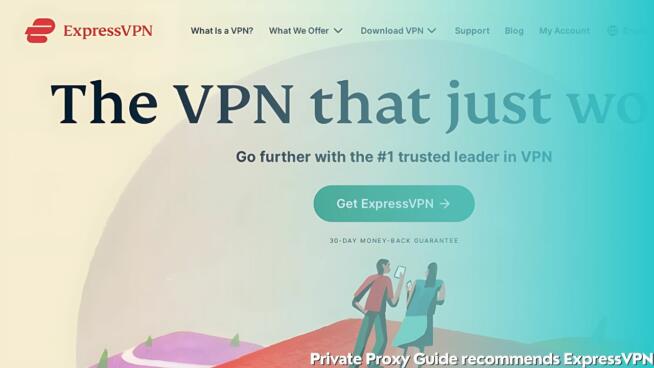
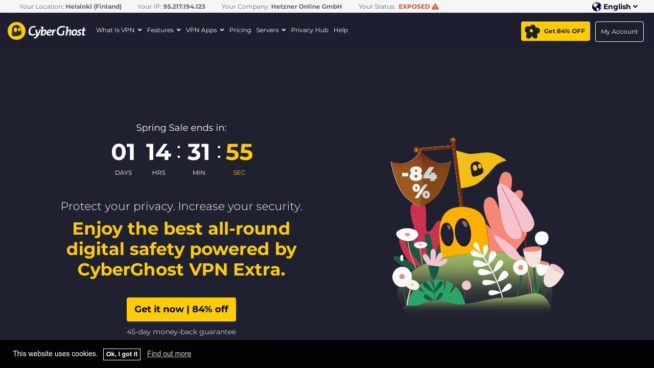
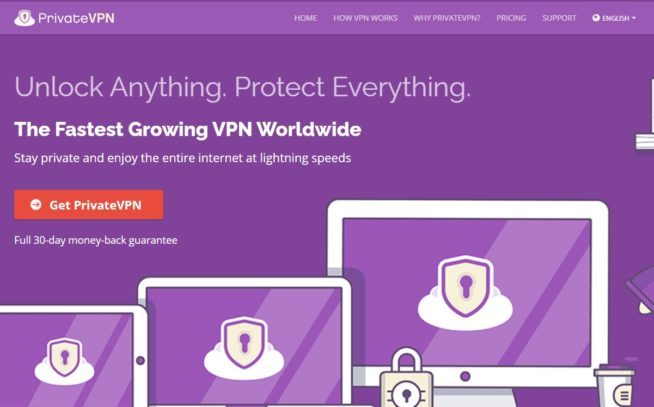
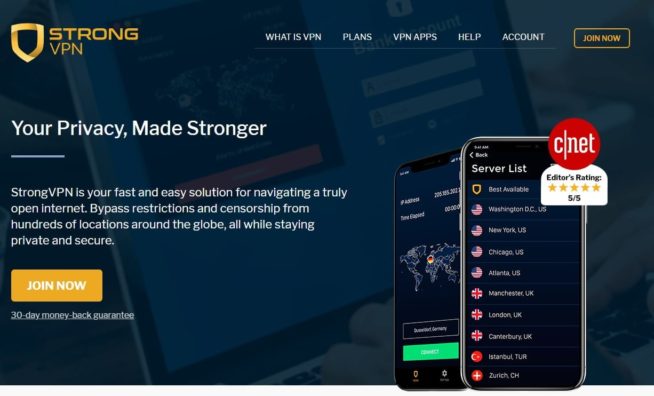
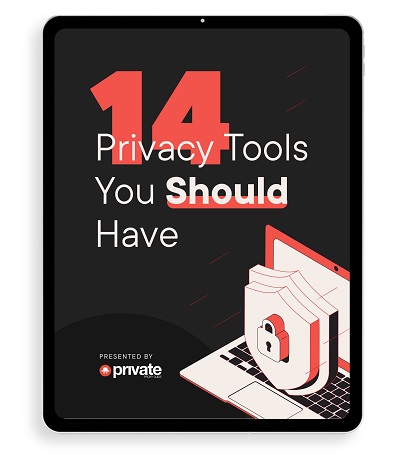

![5 Best VPN Providers ([year]) [PC, iOS, Android] VPN](https://www.privateproxyguide.com/wp-content/uploads/2021/03/vpn-150x150.jpg)
![Best VPN for Kodi in [month] [year] Best VPNs for Kodi 2021 - To Avoid Buffering & Other Issues](https://www.privateproxyguide.com/wp-content/uploads/2018/05/kodi-launch-logo-150x150.jpg)

![Best VPN for DraftKings in [month] [year] Best VPN for DraftKings](https://www.privateproxyguide.com/wp-content/uploads/2018/07/Best-VPN-for-DraftKings-150x150.jpg)
![Best Fortnite VPN in [month] [year] Best VPN for Fortnite](https://www.privateproxyguide.com/wp-content/uploads/2018/07/Best-VPN-for-Fortnite-BattleRoyale-150x150.jpg)
![5 Best VPN for Bet365 ([year]) [Fix not working] Best VPN for Bet365](https://www.privateproxyguide.com/wp-content/uploads/2018/08/best-vpn-for-bet365-150x150.jpg)
![Best Showbox VPN in [month] [year] Best VPN for Showbox](https://www.privateproxyguide.com/wp-content/uploads/2018/08/best-vpn-for-showbox-150x150.jpg)
![Best VPN for School WiFi in [month] [year] Best VPN for School WiFi in 2021 - How to Bypass VPN Bans](https://www.privateproxyguide.com/wp-content/uploads/2018/08/Best-VPN-for-School-College-150x150.jpg)
![Best Popcorn Time VPN in [month] [year] BEST VPN for Popcorn Time](https://www.privateproxyguide.com/wp-content/uploads/2019/01/best-vpn-for-popcorn-time-150x150.jpg)
![3 Best Apple TV 4K VPN in ([year]) & Setup Instructions Best VPN for Apple TV 4K 2021](https://www.privateproxyguide.com/wp-content/uploads/2019/02/Best-Vpn-for-apple-tv-4k-150x150.jpg)
![7 Best VPN for Hulu ([year]) [Fix not working] Best VPN for Hulu 2021](https://www.privateproxyguide.com/wp-content/uploads/2020/10/best-vpn-for-hulu-150x150.jpg)
![Best Nvidia Shield TV VPN in [month] [year] Best VPN for Nvidia Shield TV](https://www.privateproxyguide.com/wp-content/uploads/2019/03/best-vpn-for-nvidia-shield-tv-150x150.jpg)
![Best UAE & Dubai VPN in [month] [year] Best VPN for UAE & Dubai 2021](https://www.privateproxyguide.com/wp-content/uploads/2019/03/Best-VPN-for-UAE-Dubai-150x150.jpg)
